╳

Get The Latest On Our Greatest
Subscribe to Our Company/Product Updates

Tuesday, December 5, 2017
A few years back, I took some extra work on a friend’s building crew. Their bread and butter work was putting up and welding together steel fencing for everything from restaurants and breweries to lumber yards and building material depots. I’ve seen projects that required lots of onsite welding and those that didn’t require any or very little. With very few exceptions, those in the latter category seem to be longer lasting and more beautiful than those in the former category.
Commercial fencing needs to be strong enough to provide adequate security and preferably attractive to look at, and rust is one thing that can get in the way of both goals. Rust is often the result of bad onsite weld jobs, but panels that hook into place, as opposed to panels that need to be welded together, push down the project’s bottom line, and when well designed are able to provide strength comparable to a weld. If a pre-welded fencing system is on your horizon, there a few things to look for that tend to produce the easiest install and the best long-term results.
What to Look for in Commercial Steel Fence Panels
Anything that saves significant on-site assembly time is a huge boon to everyone involved. Welding on site sucks up a great deal of time, and, while popular with the welder, isn’t as friendly to the overall construction budget. I’ve been on some sites in which a team would get a section of the fence up, then those workers would have very little to do while the welders worked. I’ve also seen on-site welding result in the welders becoming pressured and not making the highest quality welds. That is an unfortunate result, as a bad weld is one of the first places where corrosion occurs on a steel fence. The qualities I look for in a commercial fence system are:
Durability after the Install
Durability is a pretty important consideration no matter what kind of fencing is being used. I’ve already briefly mentioned the rust problems that I’ve seen develop along bad welds. Most fences are particularly vulnerable at the weld and generally vulnerable wherever there is some kind of joint. Moisture penetration and the rust that ensues are the primary cause of deterioration in otherwise sturdy steel fences. Here’s what it takes to really keep rust at bay.
I’ve been on lots of job sites where time and money were wasted doing a ‘quick and dirty’ on-site fence welding job, and in my experience, pre-assembled, pre-welded panels connected with brackets are a much better choice. When you use a high-quality manufacturer, you get welds of much better quality as well as premium coatings and high-quality steel for a long, low maintenance lifetime for the fence.
Some of the best fence systems of this kind are produced by Fortress Building Products. For locations that require something very heavy duty, their Titan line of industrial fencing has benefits that are fairly rare in the industry, creating an ideal combination of good looks and fundamental strength. In addition to good fencing, they also produce a wide range of innovative building materials, so if you’re in need of commercial railing or ornamental hardware as well as fencing, take a look at their larger catalog of products.
Search